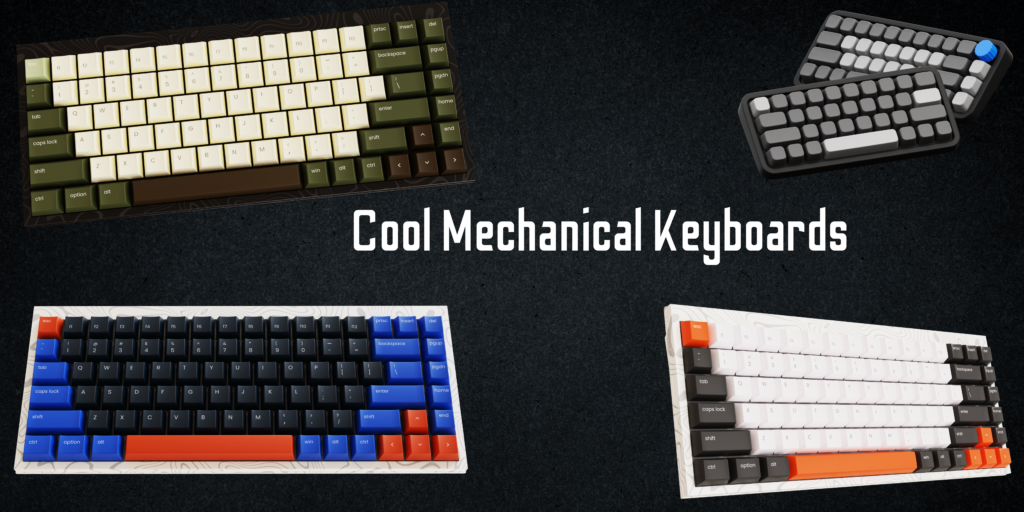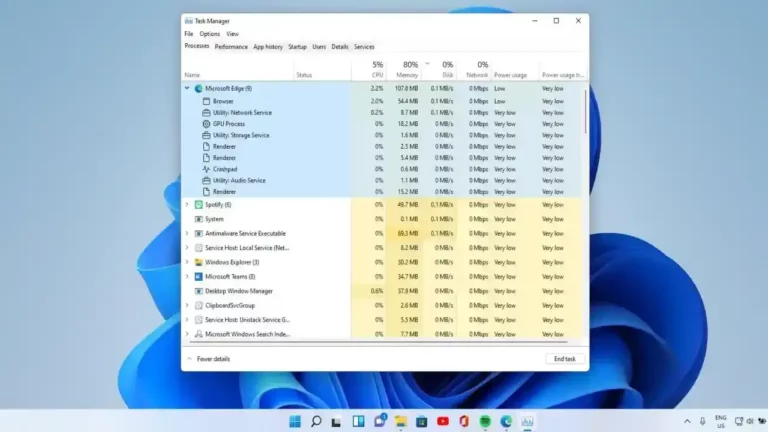Welcome to our Type Better Faster, Type Smarter with Keyboard Shortcuts, and Keyboard Recommendations Blog.
As this is our first blog post, we thank you for the time to read it. We hope to provide as much value as possible to learning typing, improving your keyboard skills, and expanding your typing needs.
Typing has become an essential aspect of our daily lives in the digital era. From writing emails to coding, we rely heavily on our keyboards to get things done efficiently. But have you ever considered how you might enhance your typing speed and accuracy?
In this blog, we will provide you with some tips and tricks on how to type better, faster, and smarter with keyboard shortcuts and keyboard recommendations.
Why Keyboard Skills are Important

Increased Efficiency
Saving time by typing more quickly and accurately is really beneficial. Having strong typing abilities will help you do your chores swiftly and effectively whether you’re a professional or a student.
Imagine being able to do that homework you used to do in 2 hours in just 20 minutes.
Imagine that work or personal project of typing a document that would take you 1 hour and you end up just typing it in 15 minutes.
That is the power of typing better, smarter, and faster overall.
Better Communication
You can communicate more effectively if you can type quickly and accurately. You don’t have to worry about making grammatical or other errors when you type down your thoughts and ideas.
Typing better overall definitely helps you to communicate better since it is easier to express how you are feeling, thinking, or need to write through your fingertips.
That is where learning touch typing, using keyboard shortcuts, and a better posture come into play.
Improved Productivity
You may complete more work in less time by typing more quickly and accurately. As a result, you may be more productive, helping you to fulfill your objectives more quickly.
You will be able to accomplish more in less time as your typing becomes more fluid overall.
Better typing, Smarter Proactive Typing > Slow typing, Reactive Typist
Your ability to get more work done is precedent on the fact that you improve your typing, workflow, and equipment to do great work.
How to Type Better and Faster

1. Practice Makes Perfect
You get better at typing the more you practice. Put in some daily practice time honing your typing abilities. To help you increase your typing speed and accuracy, you can utilize applications or programs that are available online or offline.
But, offline applications have also been demonstrated to operate, and you wouldn’t need an internet connection to work on your abilities. Many modern typists prefer to train with online tools.
We have discovered that if you simply practice typing on your daily task and keep doing it, you will ultimately get better.
You will need to practice most talents if you want to steadily develop, though.
2. Use Keyboard Shortcuts
Utilizing keyboard shortcuts helps you save a lot of time and effort. You may accomplish certain activities more quickly by utilizing keyboard shortcuts rather than the mouse. You may, for example, use the keyboard shortcut “Ctrl + C” for the “copy” button.
The whole premise of this blog is not just to type better and faster, you need to type SMARTER.
Typing smarter includes using keyboard shortcuts for your computer to do tasks like moving files in your File Explorer/Finder.
On top of the ability to use keyboard shortcuts for tasks like copying and pasting in your file explorer/finder… you can also use them in apps such as Microsoft Word, Microsoft Excel, Google Docs/Sheets/Slides, Adobe Acrobat, Adobe Photoshop, and your browsers including Google Chrome, Mozilla Firefox, Safari, and other apps!
3. Use the Right Keyboard
Your typing speed and accuracy can significantly increase if you use the correct keyboard. Choose a keyboard that is convenient and pleasant to use.
Mechanical, membrane and ergonomic keyboards are among the many varieties of keyboards available.
Apart from comfort and convenience, the type of keyboard you select might have an impact on the sound and tactile feel of your keystrokes.
For instance, mechanical keyboards produce a pleasing click and tactile feel when typing since each key has its own switch.
On the other hand, membrane keyboards employ a silicone or rubber dome to produce a softer, quieter typing experience.
Curved-shaped ergonomic keyboards are created to ease wrist pain and encourage a more natural typing position.
In the end, finding the ideal keyboard for your requirements may make working more comfortable and productive.
Use Typing Tools
You may improve your typing skills by utilizing one of the many typing tools available.
For instance, you may train your speed and accuracy using typing games. Software that assesses your typing and offers suggestions for improvement is also an option.
You can even be using a Typing tool widget that you install to your computer that tells you the WPM (Words Per Minute) speed you are typing on your computer whether it is you typing in Browser’s search bar, a Document, or a Spreadsheet.
This widget by Typemasters proves to be a valuable widget to have on your computer if you are serious about improving your typing skills and learning how to type better.

Keyboard Recommendations
Mechanical Keyboards

They typically look like this. The wooden feel is something to add some flair. They usually are built with plastic, rubber, and either steel or aluminum. They make some slightly loud tapping-clacking noise when you type. The feeling can be pleasant for most, but maybe not many in quiet areas.
Mechanical keyboards are well-known for their dependability and durability. Also, they respond quickly and offer great tactile feedback. A mechanical keyboard can be a suitable choice for you if you type a lot.
The Benefits of Mechanical Keyboards:
- Customizable features include interchangeable keycaps and various switch kinds
- Fast and precise inputs with anti-ghosting and n-key rollover capabilities
- Featuring separate switches that are changeable and repairable, membrane keyboards have a shorter lifespan.
- To lessen wrist strain and encourage natural typing posture, a more ergonomic design with a higher profile is needed.
- An audio indication for touch typists through distinct sound feedback

Ergonomic Keyboards

Your wrists and hands will experience less stress if you use an ergonomic keyboard. These are perfect for individuals who type frequently. Because ergonomic keyboards exist in a range of sizes and forms, you may choose one that meets your needs.
The Benefits of Ergonomic Keyboards:
- Less stress on the hands and wrists, preventing or treating repetitive strain ailments such as carpal tunnel syndrome
- A more natural posture for typing might increase comfort overall and lessen tiredness during prolonged typing sessions.
- Improved finger positioning and fewer accidental keystrokes will increase typing accuracy and speed.
- Features that may be altered by the user, such as height and tilt adjustments
- Reduced discomfort and fewer pauses are required because of pain or discomfort, which increases total productivity.
Wireless Keyboards
Since they let you type while standing back from the keyboard, wireless keyboards are useful. These are perfect for those who use their laptops for meetings or presentations. Because wireless keyboards exist in a range of sizes and styles, you may choose one that matches your needs.
The Benefits of Wireless Keyboards:
- Increased flexibility and mobility, enabling you to use your keyboard without being attached to your device and at a distance.
- Less mess on your desk or office because there are no cables to maintain or tangle with
- Enhanced ergonomics, allowing you to move your keyboard without being constrained by the length of a wire
- Improved mobility that makes it possible for you to use your keyboard on the go and with numerous devices
- Some wireless keyboards provide plug-and-play installation, making them simple to set up and use.
Wired Keyboards
Many users advise using a wired keyboard because of its numerous benefits.
First off, since they don’t rely on wireless signals that might be interfered with, they provide a more dependable and consistent connection to your computer. They are thus the perfect option for gamers or businesspeople that need a quick and continuous typing experience.
Also, because wired keyboards do not utilize batteries, they do not require frequent replacement. They are a cost-effective choice for individuals on a budget because they are less costly than wireless keyboards. Also, there is no need for any additional software or drivers because wired keyboards are widely accessible and functional with a variety of devices.
Overall, wired keyboards are an excellent option for customers that value stability, dependability, and price.
The Benefits of Wired Keyboards:
- A Connection that is more dependable & robust that is not hampered by wireless signals
- Excellent for typing quickly and continuously for professionals and gamers
- No batteries or charging is required, therefore there is no need for constant replacement.
- They are less costly than wireless keyboards, making them a more affordable choice.
- No extra software or drivers are required for compatibility with a variety of devices.
FAQs
Q1: How can I improve my typing speed?
A1: By consistently practicing, employing keyboard shortcuts, and utilizing typing programs, you may increase your typing speed.
Q2: What is the best type of keyboard for typing?
A2: The ideal keyboard for typing relies on your individual needs and preferences. Examples include mechanical keyboards, which are excellent for heavy typists, and ergonomic keyboards, which are made to ease the pressure on your hands and wrists. If you need to type remotely, wireless keyboards are useful.
Everything relies on your personality, preferred tools, preferred typing style, and average session length.
Q3: How long does it take to improve typing skills?
A3: Depending on where you start and how much time and effort you put into practice, it might take a while to increase your typing speed. It just takes a few weeks or months of consistent practice and determination to show improvement.
Q4: Are keyboard shortcuts really that helpful?
A4: You may indeed save a ton of time and effort by using keyboard shortcuts. You may accomplish certain activities more quickly by utilizing keyboard shortcuts rather than the mouse. It may take some time to master the shortcuts, but once you do, they may greatly boost your productivity.
Q5: Can using the wrong keyboard cause injury?
A5: The improper keyboard can cause hand and wrist strain, which over time might result in damage. To lower the danger of damage, it’s critical to pick a keyboard that is comfortable and simple to operate. For individuals who type a lot, ergonomic keyboards are a wonderful alternative because they are made expressly to ease the pain.
Q6: Can I learn to type faster without looking at the keyboard?
A6: Absolutely, it is feasible to develop your keyboard vision so that you can type more quickly. Using muscle memory to type without looking at the keys is a method known as touch typing. You may use touch typing to increase your typing speed and accuracy with some practice.
Q7: Are there any typing apps or programs you recommend?
A7: Sure, there are a lot of typing applications and tools that can help you get better at typing. Nitro type, TypeRacer, and TypingClub are a few of the well-known ones. Finding software or app that works for you and meets your needs is crucial.
Other popular offline software programs include TypingMaster and KAZ Typing.
Q8: Is it worth investing in an expensive keyboard?
A8: If you type a lot, it may be worthwhile to invest in a high-quality keyboard. A high-quality keyboard will help you type more quickly and accurately, will lessen hand and wrist fatigue, and will last longer than a less expensive keyboard. Yet, regardless of cost, it’s critical to select a keyboard that is cozy and meets your demands.
Q9: Can typing speed affect job performance?
A9: Indeed, especially if your profession requires a lot of typing, typing speed can have an impact on how well you do at work. Improved work performance may result from faster typing, which can also boost productivity and efficiency. Moreover, when hiring for specific occupations, employers could take typing speed into account.
Q10: What should I do if I experience hand or wrist pain while typing?
A10: It’s crucial to frequently extend your hands and wrists if you have hand or wrist pain when typing. Use an ergonomic keyboard, speak with a physician or physical therapist for more guidance, or all three. Prioritizing your health and well-being while working or typing is crucial.
In conclusion, developing a mastery of the art and science of keyboarding may greatly increase your productivity.
A critical first step towards reaching this objective is selecting the ideal keyboard for your requirements and tastes.
The advantages of each type of keyboard are obvious, whether you choose a mechanical keyboard for its sturdiness and adaptability, an ergonomic keyboard to lessen strain and encourage natural typing posture, a wireless keyboard for increased flexibility and mobility, or a wired keyboard for its dependability and affordability.
Further improving your typing abilities and lowering the danger of repetitive strain injuries are healthy typing practices including keeping good posture, taking pauses, and routinely extending your hands and fingers…
You can type more accurately, work more effectively, and accomplish your goals more quickly and easily with the correct keyboard and skills.
Conclusion
In conclusion, the ability to type is crucial in the current digital world.
You may increase your typing speed and accuracy by honing your abilities, learning keyboard shortcuts, and selecting the appropriate keyboard. We hope that this blog has provided you with some valuable suggestions and advice for improving your typing accuracy, efficiency, and speed.






Nice post. I learn something new and challenging on websites I stumbleupon every day. It will always be useful to read through articles from other writers and use a little something from other websites.
We appreciate you. Thank you for your nice comment, motivates us to write much more and better posts.
Id like to thank you for the efforts you have put in penning this site. Im hoping to see the same high-grade blog posts by you in the future as well. In fact, your creative writing abilities has inspired me to get my own site now 😉
We appreciate you. Thank you for your nice comment, motivates us to write much more and better posts.
[…] By the end of this article, you’ll have a better understanding of how to improve your typing accuracy and speed. For more tips on how to type better, check out this helpful guide. […]
Good post. I learn something totally new and challenging on websites I stumbleupon every day. Its always exciting to read articles from other writers and practice a little something from other sites.
These tips actually do make a lot of sense. Thank you!
Greetings! Very useful advice within this article! Its the little changes that make the most significant changes. Thanks a lot for sharing!
I have to thank you for the efforts youve put in writing this blog. Im hoping to check out the same high-grade blog posts by you later on as well. In fact, your creative writing abilities has encouraged me to get my own website now 😉
[…] How to Type Better – Mastering the Art and Science of Keyboards […]
Itís nearly impossible to find educated people in this particular subject, however, you seem like you know what youíre talking about! Thanks
This was beautiful Admin. Thank you for your reflections.
Good post! We will be linking to this particularly great post on our site. Keep up the great writing
We appreciate your kind words, and would love to see your site and maybe collab in the future with a guest post or 2.
Thank you, best of wishes in all endeavors!
You can email me at keyboardcheats@keyboardcheatcodes.com
very informative articles or reviews at this time.
Hi there, everything is going perfectly here and ofcourse every one is sharing information, that’s genuinely good, keep up writing.
Its not my first time to go to see this website, i am browsing
this website dailly and get good information from here everyday.
best online essay writer
How to Type Better – Mastering the Art and Science of Keyboards